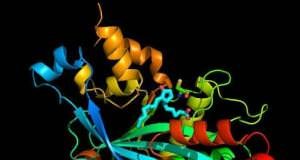Inflammation In Depression: Chicken Or Egg?
An important ongoing debate in the field of psychiatry is whether inflammation in the body is a consequence of or contributor to major depression. A new study in Biological Psychiatry has attempted to resolve the issue.
Boost For Health? Researchers Isolate Protein Linking Exercise To Health Benefits
A team led by researchers at Dana-Farber Cancer Institute has isolated a natural hormone from muscle cells that triggers some of the key health benefits of exercise. They say the protein, which serves as a chemical messenger, is a highly promising candidate for development as a novel treatment for diabetes, obesity and perhaps other disorders, including cancer.
Why Coffee Drinking Reduces The Risk Of Type 2 Diabetes
Why do heavy coffee drinkers have a lower risk of developing Type 2 diabetes, a disease on the increase around the world that can lead to serious health problems? Scientists are offering a new solution to that long-standing mystery in a report in ACS' Journal of Agricultural & Food Chemistry.
Would You Stop Eating Out To Lose Weight?
Going out to eat has become a major part of our culture. Frequently eating out and consuming high-calorie foods in large portions at restaurants can contribute to excess calorie intake and weight gain. However, a study in the January/February 2012 issue of the Journal of Nutrition Education and Behavior demonstrates that individuals can eat out and still lose weight.
Gut Microbe Networks Differ From Norm In Obese People, Systems Biology...
For the first time, researchers have analyzed the multitude of microorganisms residing in the human gut as a complex, integrated biological system, rather than a set of separate species. Their approach has revealed patterns that correspond with excess body weight.
Omega-3 Fatty Acids Could Prevent And Treat Nerve Damage, Research Suggests
Research from Queen Mary, University of London suggests that omega-3 fatty acids, which are found in fish oil, have the potential to protect nerves from injury and help them to regenerate. When nerves are damaged because of an accident or injury, patients experience pain, weakness and muscle paralysis which can leave them disabled, and recovery rates are poor.
Dried Licorice Root Fights The Bacteria That Cause Tooth Decay And...
Scientists are reporting identification of two substances in licorice -- used extensively in Chinese traditional medicine -- that kill the major bacteria responsible for tooth decay and gum disease, the leading causes of tooth loss in children and adults. In a study in ACS' Journal of Natural Products, they say that these substances could have a role in treating and preventing tooth decay and gum disease.
When Overeating, Calories — Not Protein — Contribute To Increase In...
In a study conducted among 25 healthy individuals living in a controlled setting who were randomized to overconsumption of different levels of protein diets, those consuming the low-protein diet had less weight gain compared to those consuming normal and high protein diets, and calories alone, and not protein appeared to contribute to an increase in body fat, according to a study in the January 4 issue of JAMA.
Alzheimer’s Damage Occurs Early
The first changes in the brain of a person with Alzheimer's disease can be observed as much as ten years in advance -- ten years before the person in question has become so ill that he or she can be diagnosed with the disease. This is what a new study from Lund University in Sweden has found.
Couch Potato Or Elite Athlete? A Happy Medium Keeps Colds At...
Battling colds and doing (or pledging to do) more exercise are familiar activities for most of us in January. But different levels of exercise can actually significantly increase or decrease your chances of catching a respiratory infection, says Professor Mike Gleeson from Loughborough University.
Possible Cure For Leukemia Found In Fish Oil
A compound produced from fish oil that appears to target leukemia stem cells could lead to a cure for the disease, according to Penn State researchers. The compound -- delta-12-protaglandin J3, or D12-PGJ3 -- targeted and killed the stem cells of chronic myelogenous leukemia, or CML, in mice, said Sandeep Prabhu, associate professor of immunology and molecular toxicology in the Department of Veterinary and Medical Sciences.
Alzheimer’s: Diet Patterns May Keep Brain From Shrinking
People with diets high in several vitamins or in omega 3 fatty acids are less likely to have the brain shrinkage associated with Alzheimer's disease than people whose diets are not high in those nutrients, according to a new study published in the December 28, 2011, online issue of Neurology®, the medical journal of the American Academy of Neurology.
















